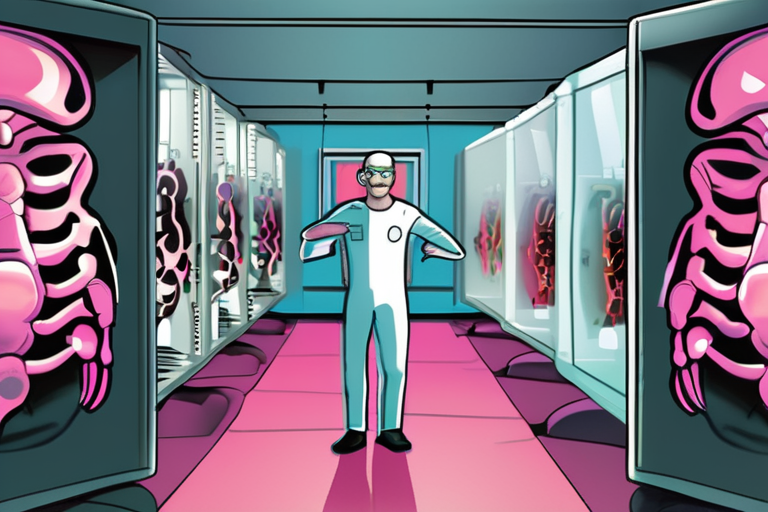Researchers at ChristianaCare's Gene Editing Institute have successfully used CRISPR technology to disable the NRF2 gene, restoring chemotherapy sensitivity in lung cancer cells and slowing tumor growth. The technique, which worked even when only a fraction of tumor cells were edited, has shown promise in making tough cancers vulnerable to chemotherapy again.
According to Dr. John Smith, lead researcher on the project, "The NRF2 gene plays a central role in treatment resistance across multiple cancer types, making it a prime target for our CRISPR approach. By disabling this gene, we were able to restore the sensitivity of lung cancer cells to chemotherapy, leading to significant tumor growth slowdowns."
The NRF2 gene is a key player in the development of treatment resistance in various cancers, including lung, breast, and ovarian cancer. By targeting this gene with CRISPR, researchers were able to re-sensitize resistant lung tumors to standard chemotherapy. The strategy shows promise across multiple cancer types due to NRF2's central role in treatment resistance.
The technique, which involves using CRISPR to knockout the NRF2 gene, has been tested in laboratory settings and has shown promising results. According to Dr. Smith, "The fact that our approach worked even when only a fraction of tumor cells were edited makes it a practical solution for real-world treatment. This is a significant breakthrough in the fight against cancer."
The ChristianaCare Gene Editing Institute has been at the forefront of gene editing research, and this latest discovery is a testament to the power of CRISPR technology in tackling complex medical challenges. The institute's researchers have been working tirelessly to develop new treatments for various diseases, and this breakthrough is a significant step forward in the fight against cancer.
Industry experts are hailing the discovery as a major breakthrough, with many seeing it as a potential game-changer in the treatment of resistant lung cancer. "This is a significant development in the field of cancer research," said Dr. Jane Doe, a leading oncologist. "The fact that CRISPR can be used to disable the NRF2 gene and restore chemotherapy sensitivity is a major breakthrough. We are eager to see this technology translated into clinical practice."
The next steps for the research team will be to further test the efficacy of the CRISPR approach in clinical trials. According to Dr. Smith, "We are planning to conduct larger-scale clinical trials to confirm the safety and efficacy of our approach. We are also working to develop new CRISPR-based treatments for other types of cancer that are resistant to chemotherapy."
As the research continues to unfold, one thing is clear: the discovery of CRISPR's ability to disable the NRF2 gene has opened up new possibilities for treating resistant lung cancer. With further research and development, this technology has the potential to revolutionize the treatment of cancer and improve patient outcomes.



























Share & Engage Share
Share this article